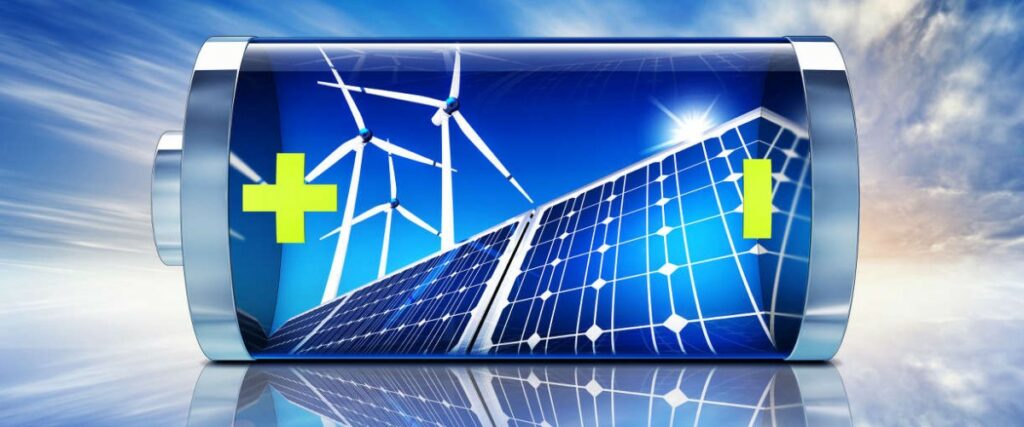Understanding Energy Storage Batteries
Energy storage batteries are devices that store electrical energy for later use. They work by converting electrical energy into chemical energy, which can be stored in the battery. When the battery is needed, it converts the chemical energy back into electrical energy, which can be used to power devices or homes. Energy storage batteries are becoming increasingly popular as renewable energy sources like solar and wind power become more prevalent. They allow excess energy generated during sunny or windy weather to be stored and used when the weather is less favorable. This helps to reduce reliance on traditional fossil fuels and improves the overall sustainability of the energy system.
Types of Energy Storage Batteries
There are several types of energy storage batteries available, each with its own unique characteristics and applications. Lead-acid batteries are the most common type of battery and are commonly used in cars and other vehicles. Lithium-ion batteries are another popular type and are often used in portable electronics and electric vehicles. Flow batteries, sodium-sulfur batteries, and zinc-bromine batteries are also available. Each type of battery has its own advantages and disadvantages depending on factors like cost, efficiency, and lifespan. It’s important to consider these factors when choosing an energy storage battery for a specific application.
Comparing Energy Storage Batteries
When comparing different types of energy storage batteries, there are several factors to consider. These include cost, efficiency, lifespan, safety, and environmental impact. Lead-acid batteries are the least expensive option but have a shorter lifespan and lower efficiency compared to other types. Lithium-ion batteries are more expensive but have a longer lifespan and higher efficiency. Flow batteries are highly efficient and have a long lifespan but are more expensive than other options. Sodium-sulfur and zinc-bromine batteries are also highly efficient but have limited applications due to safety concerns. It’s important to consider these factors when choosing an energy storage battery for a specific application.
Choosing the Right Energy Storage Battery
Choosing the right energy storage battery depends on several factors, including the specific application, budget, and desired lifespan. For example, lead-acid batteries are a good option for applications where cost is a primary concern and there is ample space available for installation. Lithium-ion batteries are a better choice for applications where space is limited and a longer lifespan is desired. Flow batteries are a good option for large-scale applications where efficiency and lifespan are important factors. It’s important to consult with a professional to determine the best type of energy storage battery for a specific application.

***FAQ***
Q1: What batteries are used for energy storage?
There are several types of batteries that can be used for energy storage, including lead-acid, lithium-ion, flow, sodium-sulfur, and nickel-cadmium batteries. The choice of battery depends on factors such as cost, performance, safety, and environmental impact.
Q2: What is the most efficient battery for energy storage?
Lithium-ion batteries are currently considered to be the most efficient type of battery for energy storage. They have a high energy density, long cycle life, and low self-discharge rate, making them suitable for a wide range of applications.
Q3: How long do residential energy storage batteries last?
The lifespan of a residential energy storage battery depends on factors such as the type of battery, usage patterns, and maintenance. Generally, lithium-ion batteries can last up to 10 years or more with proper care, while lead-acid batteries may need to be replaced every few years.
Q4: How many solar batteries are needed to power a house?
The number of solar batteries needed to power a house depends on factors such as the size of the house, the energy needs of the household, and the capacity of the batteries. A typical home may require anywhere from one to several dozen solar batteries to meet its energy needs.
Q5: Is it worth getting a battery for your solar system?
Whether or not it is worth getting a battery for a solar system depends on factors such as the cost of electricity, the availability of net metering, and the reliability of the local grid. In some cases, having a battery can help reduce electricity costs and provide backup power during outages.
Q6: What is the cheapest way to store solar energy?
Currently, the cheapest way to store solar energy is using lead-acid batteries. However, these batteries have limited cycle life and may need to be replaced more frequently than other types of batteries. Other options for storing solar energy include lithium-ion batteries, flow batteries, and thermal storage systems.
